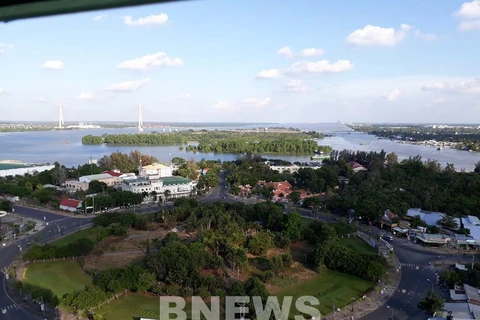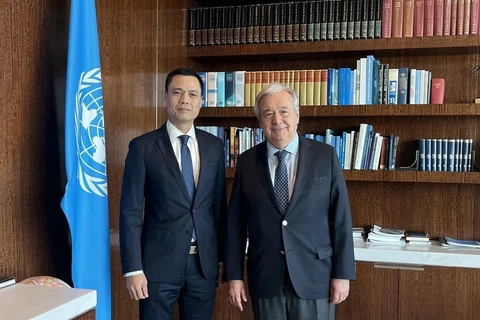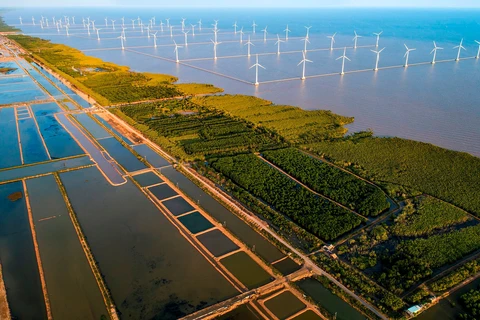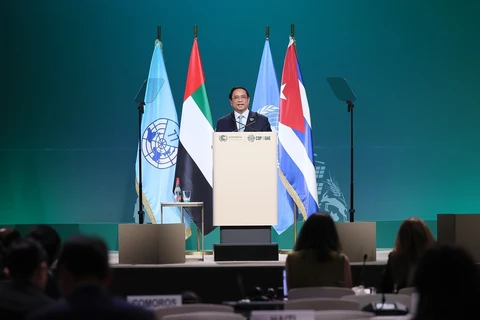Hanoi (VNA) – Vietnam is one of the first 63 countries to join the Global Cooling Pledge proposed by President of the UN Climate Change Conference of the Parties (COP28) Sultan Al Jaber within the framework of COP28 recently held in Dubai, the United Arab Emirates (UAE).
Under the pledge, the global cooling sector must reduce greenhouse gas emissions by at least 68% by 2050 compared to 2022, helping to maintain the global average temperature increase at the threshold of 1.5 degrees Celsius in line with the objective of achieving net-zero global emissions by 2050.
As one of the countries hardest hit by climate change, coupled with a significant increase in the use of cooling devices in recent years, Vietnam has been aware of the importance of taking adaptive actions to address climate change and protect the environment.
According to the Department of Climate Change under the Ministry of Natural Resources and Environment, sustainable cooling requirements have been integrated into the tasks and solutions outlined in the National Strategy on Climate Change until 2050 and the updated Nationally Determined Contributions (NDCs) for 2022.
The department worked with partners and signed Memoranda of Understanding on cooperation with the UN Environment Programme (UNEP) and the Global Green Growth Institute (GGGI) in order to enhance the country’s capacity of implementing the NDCs.
It built policies and programmes to step up the progress of the NDCs in two priority areas of climate change response and sustainable cooling in Vietnam’s urban areas.
To promote climate-friendly cooling solutions against extreme heat in Vietnamese cities, the department in collaboration with the UNEP and the GGGI launched a programme on sustainable urban cooling in Vietnam's urban areas, with support from the Clean Cooling Collaborative. It is being piloted in the Mekong Delta city of Can Tho, Tam Ky city in the central province of Quang Nam and Dong Hoi city in the central province of Quang Binh.
Additionally, the department and the UNEP have been working on a programme named "NDC Action Project – Facilitating the Implementation of Climate-Resilient and Low-Carbon Development aligned with National and Global Goals".
During the 2020-2025 period, Vietnam aims to achieve a 35% reduction in the baseline consumption of hydrochlorofluorocarbons (HCFCs), phasing it out until the complete end of HCFC import by 2040./.
























